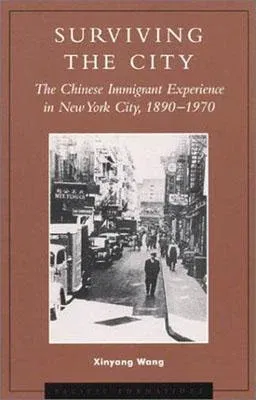Xinyang Wang
(Author)Surviving the City: The Chinese Immigrant Experience in New York City, 1890d1970Paperback, 3 July 2001

Qty
1
Turbo
Ships in 2 - 3 days
In Stock
Free Delivery
Cash on Delivery
15 Days
Free Returns
Secure Checkout

Part of Series
Pacific Formations: Global Relations in Asian and Pacific Pe
Part of Series
Pacific Formations
Print Length
176 pages
Language
English
Publisher
Rowman & Littlefield Publishers
Date Published
3 Jul 2001
ISBN-10
0742508919
ISBN-13
9780742508910
Description
Product Details
Author:
Book Format:
Paperback
Country of Origin:
US
Date Published:
3 July 2001
Dimensions:
22.91 x
14.94 x
1.3 cm
ISBN-10:
0742508919
ISBN-13:
9780742508910
Language:
English
Pages:
176
Publisher:
Weight:
258.55 gm